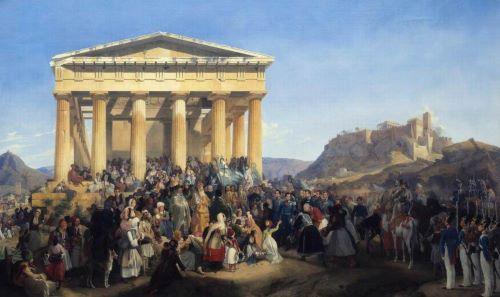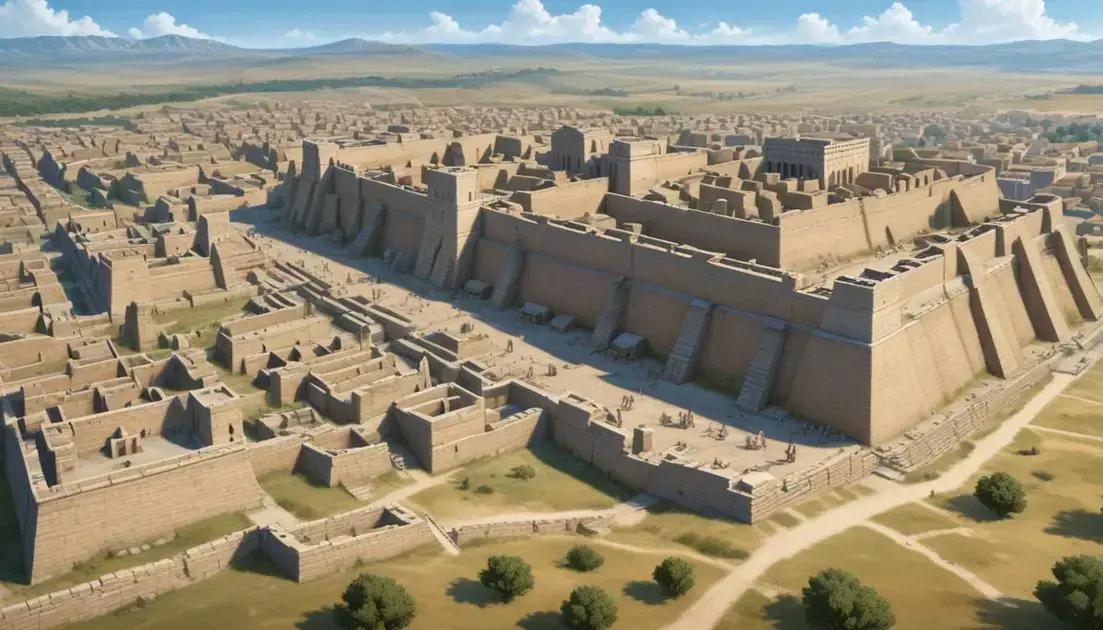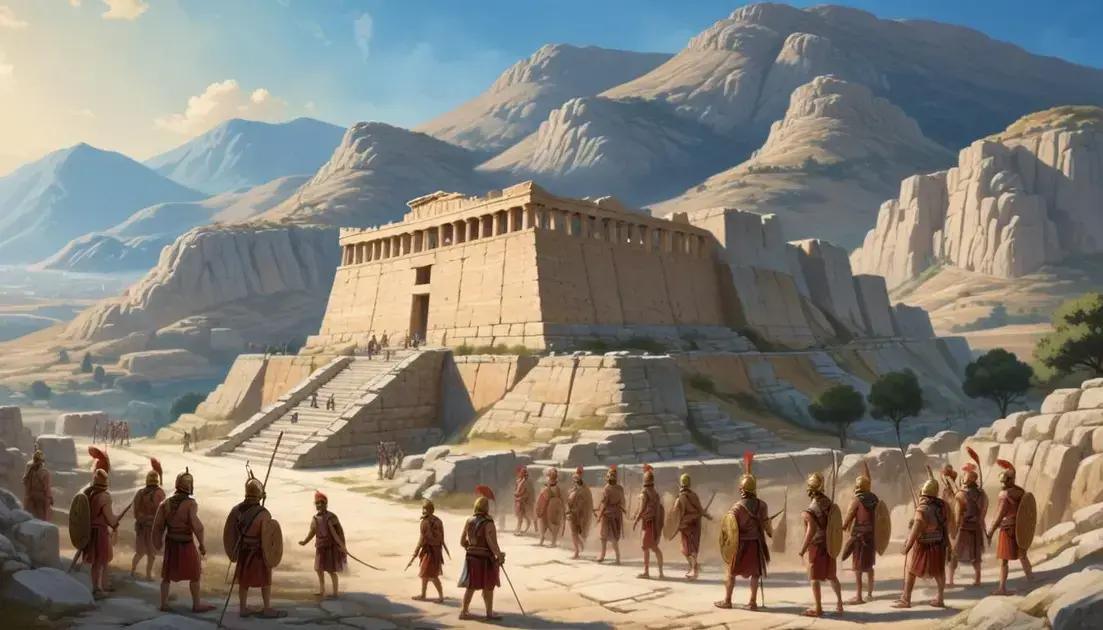
The Rise of Ancient Athens: Democracy and Philosophy
Ancient Athens, a city-state nestled in the Attic peninsula of Greece, stands as a towering figure in the narrative of Western civilization. Its flourishing during the 5th century BCE cemented its place as a crucible of political innovation, philosophical inquiry, and artistic brilliance. More than just a collection of magnificent structures like the Parthenon and the Acropolis, Athens was a vibrant metropolis teeming with intellectual ferment and ambition, attracting some of history’s most influential minds. This exploration delves into the remarkable rise of Ancient Athens, examining the intricate interplay of its democratic institutions, groundbreaking philosophical contributions, and flourishing artistic and cultural expressions that continue to shape our world today. We will journey through the evolution of Athenian governance, the revolutionary ideas of its philosophers, the captivating performances of its theaters, and the enduring legacy of its architectural and artistic achievements.
From Monarchy to Democracy: A Gradual Transformation
The Athenian path to democracy wasn’t a sudden revolution, but a gradual evolution spanning centuries. Initially governed by kings, power eventually shifted to an oligarchy dominated by aristocratic families. This period, however, was marked by significant internal strife and social inequality, fostering a fertile ground for reform. The pivotal figure in this transformation was Solon, a statesman and poet elected archon (chief magistrate) in 594 BCE. Solon’s reforms, while not fully democratic, were groundbreaking for their time. He established a council of 400 citizens, elected by the populace, and introduced a system of appeals, thereby mitigating the unchecked power of the elite. Crucially, Solon’s reforms laid the groundwork for future, more radical democratic advancements.
The seeds sown by Solon blossomed under Cleisthenes, often hailed as the “father of Athenian democracy.” In 508 BCE, Cleisthenes implemented further reforms that fundamentally altered Athenian political life. He introduced the concept of isonomia, meaning equality before the law, a cornerstone of any just and equitable society. His most significant contribution was the creation of the Council of 500, a body of citizens selected from ten newly formed tribes, ensuring broader representation across Athenian society. This council played a vital role in preparing agendas for the Assembly and proposing legislation.
The Athenian democracy, unlike many modern systems, was characterized by direct participation. Citizens, excluding women, slaves, and foreigners (metics), had the right to attend the Assembly (Ekklesia), where they debated and voted directly on laws and policies. This direct democracy, though imperfect, empowered citizens to actively shape their governance. The Assembly’s decisions impacted all aspects of Athenian life, from military strategy and foreign policy to matters of taxation and public works. It was a system that fostered a strong sense of civic responsibility and community engagement, though it also faced inherent challenges. The potential for demagoguery, mob rule, and factionalism were ever-present dangers, frequently exploited by ambitious politicians.
The Periclean Age: A Golden Era of Athenian Democracy
The Golden Age of Pericles (495-429 BCE) epitomized the zenith of Athenian democracy and its accompanying cultural and intellectual flourishing. Pericles, a charismatic and strategically astute statesman, guided Athens through a period of unprecedented prosperity and artistic achievement. His leadership saw the construction of magnificent structures like the Parthenon, a testament to Athenian artistic prowess and civic pride. Under his guidance, the Athenian navy attained dominance in the Aegean Sea, solidifying Athens’ position as a regional power.
Despite its apparent splendor, the Periclean democracy was far from flawless. The exclusion of large segments of the population—women, slaves, and metics—from political participation remains a significant blemish on this era. Furthermore, the intense political competition often resulted in sharp divisions and factionalism, threatening the stability of the system. Nevertheless, the Periclean Age serves as a powerful testament to the possibilities of a vibrant, engaged citizenry shaping their own destiny, even amidst inherent limitations and tensions.
The Dawn of Western Philosophy: Socrates, Plato, and Aristotle
Ancient Athens wasn’t solely a cradle of democracy; it was also the birthplace of Western philosophy. The city’s unique atmosphere, characterized by intellectual curiosity and open debate, attracted brilliant minds who challenged conventional wisdom and explored profound questions about the nature of reality, knowledge, ethics, and the ideal society. This intellectual fervor led to the development of distinct philosophical schools, each with its own unique approach and emphasis.
Socrates, one of history’s most iconic figures, epitomized this intellectual ferment. He eschewed writing, preferring instead to engage in lively public dialogues with citizens of all social strata. His method, known as the Socratic method, involved a process of rigorous questioning, aiming to expose inconsistencies in reasoning and lead individuals towards self-knowledge and a clearer understanding of ethical principles. While Socrates left no written works, his influence on subsequent thinkers like Plato and Aristotle was profound and enduring.
Plato, Socrates’ most famous student, founded the Academy, one of the first institutions of higher learning in the West. His dialogues, including The Republic and Symposium, explored a vast range of philosophical themes, from the ideal state and the nature of justice to the soul’s immortality and the theory of Forms. Plato’s works laid the groundwork for much of Western metaphysics, ethics, and political philosophy. His concept of the ideal state, with its emphasis on reason, justice, and philosopher-kings, continues to spark debate and discussion even today.
Aristotle, a student of Plato who later founded the Lyceum, another prominent Athenian philosophical school, built upon and diverged from his teacher’s ideas. Known for his empirical approach and comprehensive studies across various disciplines, Aristotle’s contributions span logic, metaphysics, physics, biology, ethics, politics, and aesthetics. His works, including Nicomachean Ethics and Politics, represent a monumental contribution to the development of Western thought, offering enduring insights into human nature, morality, and political organization.
The philosophical contributions of Socrates, Plato, and Aristotle laid the foundations for Western philosophical inquiry, shaping subsequent generations of thinkers and influencing discussions on ethics, political theory, metaphysics, and epistemology for millennia. Their impact reverberates throughout Western intellectual history, emphasizing the enduring significance of Athenian intellectual life.
The Arts and Theater: A Flourishing Cultural Landscape
Ancient Athenian culture wasn’t limited to politics and philosophy; it thrived in the realm of arts and theater. The city boasted some of the greatest playwrights the ancient world has known: Aeschylus, Sophocles, and Euripides. These playwrights crafted dramas that explored profound themes of morality, human nature, and the relationship between individuals and the gods. Their works, performed in the magnificent Theater of Dionysus at the foot of the Acropolis, were integral to Athenian social and cultural life.
The Athenian theater was more than mere entertainment; it was a public forum for exploring complex ethical and political questions. Tragedy, with its exploration of human suffering and the flaws of human nature, provided audiences with opportunities for catharsis and reflection. Comedy, meanwhile, often served as a vehicle for social commentary and satire, challenging norms and institutions. These theatrical performances were an integral part of religious festivals, solidifying their connection to the community and reinforcing societal values.
Beyond theater, the visual arts also flourished in Ancient Athens. The iconic architecture, particularly the Doric, Ionic, and Corinthian orders, stands as a testament to the city’s architectural genius. The sculptures of Phidias, many adorning the Parthenon, showcased unparalleled artistic skill and a deep appreciation for beauty, proportion, and craftsmanship. The visual arts of Ancient Athens serve as a powerful reflection of the city’s values and aesthetic sensibilities.
The Enduring Legacy of Ancient Athens
The influence of Ancient Athens extends far beyond its physical remains. The democratic system, however flawed, pioneered in Athens, remains a foundation for modern governance, constantly evolving and adapting to the challenges of contemporary society. The philosophical inquiries of Socrates, Plato, and Aristotle continue to shape our understanding of ethics, politics, and the human condition. Their emphasis on reason, logic, and ethical reflection remains crucial in navigating the complexities of modern life.
The artistic and cultural achievements of Ancient Athens serve as an endless source of inspiration for artists and scholars alike. The Parthenon, a symbol of Athenian grandeur and artistic accomplishment, continues to awe and inspire visitors from around the globe. The enduring power of Athenian drama is seen in countless modern adaptations and reinterpretations of classic Greek plays.
In conclusion, Ancient Athens’s rise wasn’t a mere historical event; it was a transformative period that profoundly shaped Western civilization. Its contributions to democracy, philosophy, and the arts represent a significant milestone in human history, leaving an indelible mark on our understanding of governance, ethical thought, and artistic expression. The legacy of Ancient Athens serves as a powerful reminder of the importance of intellectual curiosity, artistic creativity, and the pursuit of a just and equitable society. It is a legacy that challenges us to continually strive for betterment, drawing inspiration from both the achievements and the imperfections of this remarkable city-state. The study of Ancient Athens remains a crucial endeavor, offering valuable insights into the complexities of human societies and the enduring pursuit of a more perfect world.


